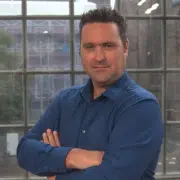China, Nord Stream, Afghanistan, Disinformation – welcome to your weekly HCSS Digest, informing you of everything our Analysts & Experts have to say on geopolitics, global challenges and international security issues worldwide:
Last week, HCSS analyst Joris Teer gave a briefing for the Dutch Parliament’s Committee on Education, Culture and Science, where he warned that with the rising tensions around Taiwan, a military conflict between the US and China is no longer imaginary. Should it come to that, then the US will have their hands full and will no longer be able to protect Europe against Russia. It is therefore in Europe’s best interest that China does not acquire military-applicable knowledge in the Netherlands, Teer commented – as reported by Erasmus University Magazine and VU University’s Ad Valvas.
Is climate change our greatest global and national security threat? In advance of COP26, the UN Climate Change Conference, HCSS Senior Strategic Analyst Laura Birkman will participate in the virtual roundtable of the Azure Forum for Contemporary Security Strategy on 28 Oct.
Curious to learn more about the geopolitical implications that come with the completion of Nord Stream 2? HCSS Strategic Analyst Irina Patrahau joined the JASON Institute’s online event this week to explain there’s more to this gas pipeline than seemingly meets the eye.
HCSS is hiring! Are you a student that wants to try your data chops on a practical policy use case? Then check out the HCSS Datalab Internship!
What to do with Afghanistan? HCSS Director of Political Affairs Han ten Broeke was a guest on radio show Spraakmakers op 1 this week, where he discussed the international conference taking place in Moscow with representatives of the Taliban and, among others, China and Pakistan.
The complaint that Russia is playing a ‘poker game’ with energy prices is unfounded, Rob de Wijk writes in his weekly column in Trouw. Energy shortage is a global problem, and European governments have not taken into account that relatively clean gas is the ideal transition fuel in the transition to sustainable energy. Environmental activists also pay little attention to the fact that an energy transition is not arranged overnight – it will certainly take until 2050, at the earliest.
How can we counter disinformation? This Sunday, in the new episode of our BNR podcast De Strateeg, HCSS Strategic Analyst Louk Faesen and MEP Bart Groothuis will discuss rules of the road for governments and for social media platforms – as mentioned in the latest HCSS report published last week.
Natural gas, shouldn’t we get rid of that? Are we not facing a sustainable future in which all of the gas extraction is a thing of the past? The fact is that the Netherlands is still 40 percent dependent on natural gas for its energy needs, HCSS Energy Specialist Jilles van den Beukel explained in the Correspondent Podcast: although we produce less and less natural gas ourselves, we still use exactly the same amount of natural gas – and that will continue to be the case for decades to come. Unfortunately, this has its drawbacks: we are increasingly at the mercy of Russian and American gas, which is often much less climate-friendly…
How can the Nagorno-Karabakh conflict be peacefully resolved? This report analyzes the conflict through the lens of conflict theory. In the absence of conflict ripeness, resolution of the dispute remains very unlikely. However, steps can be taken by parties directly and indirectly involved to manage the conflict.
Is Europe a player or is it being played? At the Mars & Mercurius symposium on November 3rd, Rob de Wijk will speak on the role of Europe in the geopolitical violence of the great powers, the US and China (and a little bit of Russia). Register now!
The confidence of the Dutch electorate in politics is waning. And that’s something that politicians should be very concerned about, Han ten Broeke commented in WNL’s Goedemorgen Nederland. Because distrust is indeed much more common in society now. There are several reasons for this, says Ten Broeke. “It is often not the crises themselves that lead to a decline in confidence, but it is mainly the aftermath of those crises,” he explains. “How is it handled?”.
Man of all trades Mr. Ten Broeke also offered his insights on shortage of personnel being a danger for economic growth, the troubles with asylum seekers from safe countries, Queen Elisabeth spending the night in the hospital – the Queen is “still going strong”, he concluded – and earlier in the week he analyzed that the impressive victory of Ajax over Dortmund was due to the Twente-effect.



